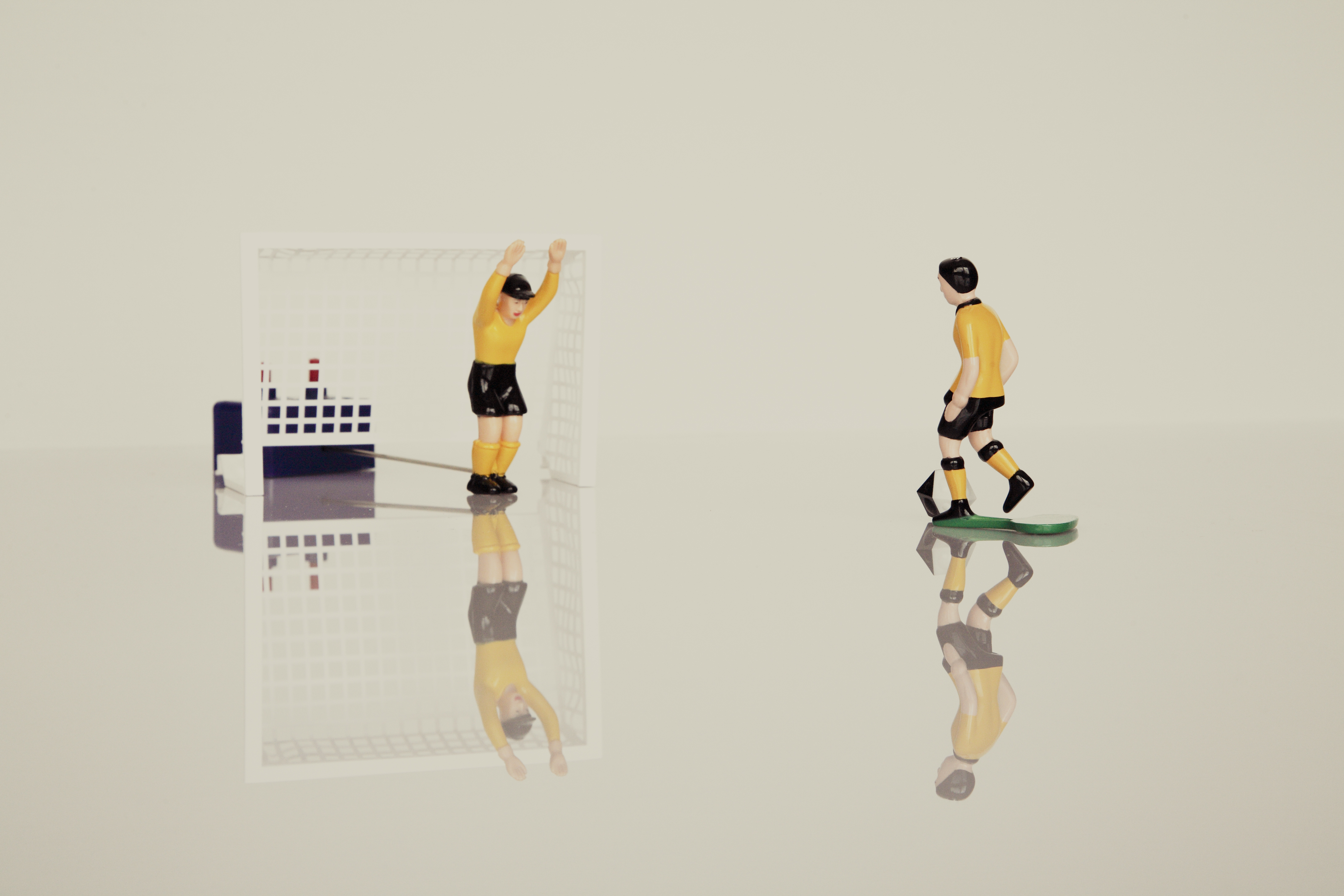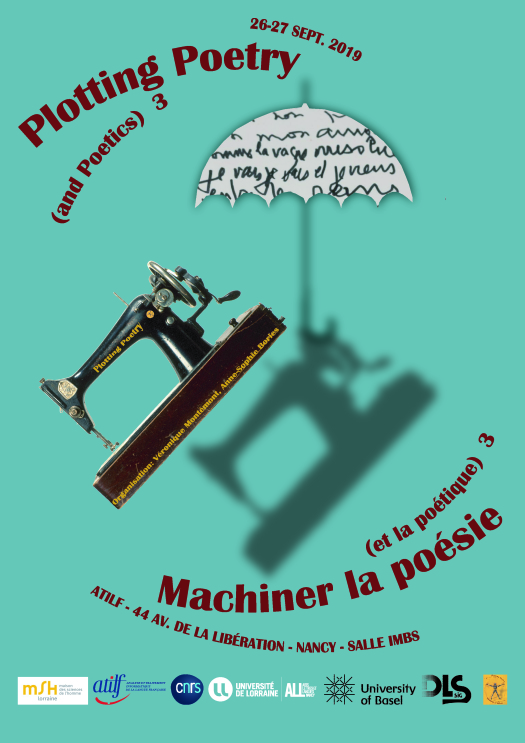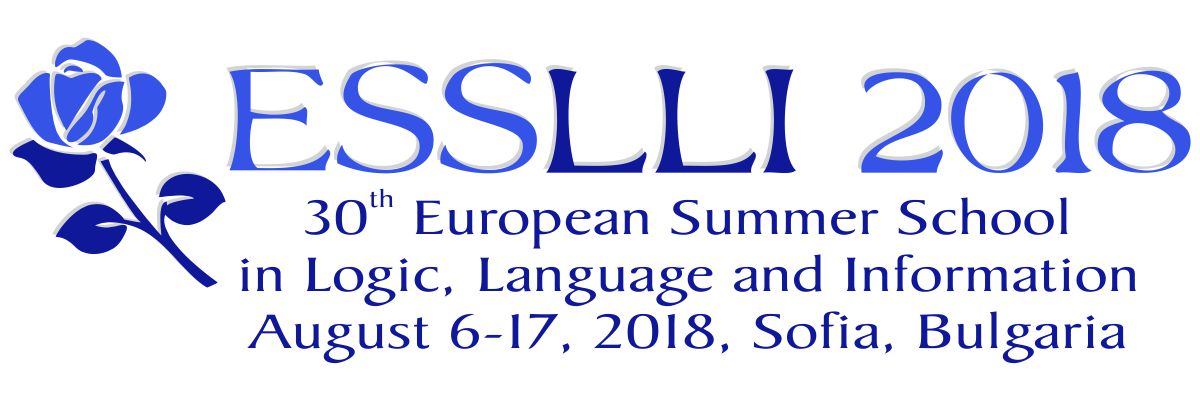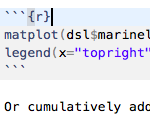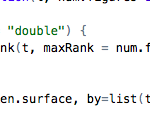Postings in English
-
Workshop on Computational Drama Analysis: Achievements and Opportunities
This is a CfP for the “Workshop on Computational Drama Analysis: Achievements and Opportunities” which will be held in Cologne on 14/15 September 2022.
-
14th October 2021
QuaDramA at CRAC 2021 and CHR2021
In November 2021, QuaDramA will present work at two different events:
-
2nd project phase kick-off: Q:Track
On October 5th the second project phase of QuaDramA has started under the name Q:Track. Supported by the DFG priority program Computational Literary Studies, we will focus our research on the character knowledge of social relations in dramatic worlds. “We” is our previous team and our new team member Melanie Andresen. Four hours were enough to distribute tasks for 3 years (at least!).
- Work packages distributed - check!
- First text selection - check!
- Cooperation partners - check!
- Worsphop planning - check!
- Special issue planning - check!
- Group photo with mask - Oh crap…
-
As of August 1st, our team includes a new member: Melanie Andresen joins the computational linguistics part of QuaDramA/Q:TRACK as a Post-Doc for three years. Her research focuses on corpus linguistics and the use of syntactic annotations.
-
Release of new corpus: GerDraCor-Coref
We are exited to announce the release of a new corpus called GerDraCor-Coref! The corpus comprises of over 30 dramatic texts (both full texts and single acts), coming from GerDraCor and manual coreference annotations on these texts. With this corpus, we aim to further study the relationship of coreference and dramatic texts and the way dramatic characters refer to each other. GerDraCor-Coref is available on GitHub. A publication describing the corpus and performing different analyses on the data has been published at the 2020 LREC conference.
-
27th February 2020
QuaDramA at the 9th Hildesheim-Göttingen-Workshop on DH and CL
QuaDramA is presenting at the 9th Hildesheim-Göttingen-Workshop on DH and CL, which is taking place on the 26th and 27th February 2020 at Göttingen. Benjamin Krautter and Janis Pagel are giving a talk on categorizing and identifying character types, taking place on Thursday, February 27, 2020 at 09:10 am.
-
26th September 2019
QuaDramA at Plotting Poetry 2019
QuaDramA is participating in the Plotting Poetry Conference 2019, which will be held on the 26th and 27th of September 2019 in Nancy, France. Benjamin Krautter and Janis Pagel are giving a talk with the title Identifying Character Types in German Drama on Friday, September 27, 2019 at 11:30 am.
-
QuaDramA: Tracking Character Knowledge (Q:TRACK)
We’re pleased to announce that QuaDramA will receive additional funding soon. In this extension called Q:TRACK, we will investigate knowledge about social relations in drama, focusing on family relations. The core idea is to track the distribution and dissemination of social knowledge by detecting the knowledge characters have, acquire and share during the course of dramatic action. In order to accomplish this, Q:TRACK combines methods from computational linguistics and digital humanities with theoretical and historical expertise of literary studies. The project builds on the research we have done in QuaDramA so far.
-
18th July 2019
We’re happy to announce that our R-Package on quantitative drama analysis, surprisingly called “DramaAnalysis”, is now available on the Comprehensive R Archive Network, CRAN. This makes the installation of the package a lot easier, because binary versions can be installed directly. Our R package assembles a number of reasonably documented functions that we find useful for drama analysis, with a focus on analysing the character speech. By providing an R package, we make experiments on textual drama data simpler and faster, in particular for literary scholars with limited programming experience. Still, as we do not provide a graphical user interface (cf. Reiter et al., 2015), some level of programming is required.
-
9th March 2019
Once again, QuaDramA is present at the DHd, held in Mainz and Frankfurt. Benjamin Krautter and Janis Pagel will present work on the classification of eponymous characters. The talk will take place at a session with the title Analyse bei Dramen und Romanen (Analysis on dramas and novels), on Thursday, March 28, at 9 a.m. to 10.30 a.m.
-
8th March 2019
We are happy to announce that we will give a tutorial on quantitative drama analysis as part of the 2nd Heidelberg Computational Humanities Summer School. The tutorial will take place on Monday afternoon (July 15) and is held by the entire QuaDramA team. We will give a brief introduction into R and RStudio, but the main part will be a hands-on session using tools we develop(ed) within our project.
This post will be updated with material, slides etc. -
12th December 2018
Detecting Protagonists and Title Figures in Plays
In a recent paper1, we investigated how protagonists and title figures can be detected in German plays and which features are important for a machine learning model in order to conduct the classification. This post can be seen as a supplement to this paper.
-
The paper is orginally written in German and got translated into English by the publisher. ↩
-
-
5th December 2018
QuaDramA will be present at the first conference of the European Association for Digital Humanities (EADH). The conference takes place December 7-9, in Galway, Ireland. In total, three presentations by persons involved in QuaDramA are planned.
-
6th August 2018
QuaDramA is participating in the annDH 2018 workshop, which is held as part of ESSLLI 2018 in Sofia, Bulgaria. Janis Pagel presents a paper with the title A Unified Text Annotation Workflow for Diverse Goals.
-
On Monday, June 18, we will give a tutorial about the DramaAnalysis R package for students at Heidelberg university. The slides can be accessed here.
-
6th June 2018
QuaDramA will be part of the international Digital Humanities conference which takes place in Mexico-City from June 25 to June 29. Benjamin Krautter’s submission got accepted and will be presented as a talk in session LP-12: Quantitative Approaches to Literature on Thursday, June 28, 14:00-15:30 p.m. See below for a short summary.
-
19th April 2018
Annotating Coreference Chains (Part 3)
We have recently started to annotate coreference chains in dramatic texts. In this loose series of blog posts, we will discuss interesting findings and examples. This post revisits the annotation tool question – again.
-
20th December 2017
Annotating Coreference Chains (Part 2)
We have recently started to annotate coreference chains in dramatic texts. In this loose series of blog posts, we will discuss interesting findings and examples. This post revisits the annotation tool question.
-
15th December 2017
QuaDramA will be part of the German-speaking DH conference DHd, which takes place in Cologne in Feb/March 2018. Benjamin Krautter’s submission got accepted, and will be presented as a talk in session 4A (digital literary studies) on Thursday, March 1, 9-10:30 a.m. See below for a short summary.
-
8th December 2017
We have just released a new version of our R package for the quantitative analysis of plays, and want to highlight a few changes here. In QuaDramA, the R package is used for data analysis, after natural language processing has taken place. The package therefore relies on pre-processed corpora.
-
Annotating Coreference Chains (Part 1)
We have recently started to annotate coreference chains in dramatic texts. In this loose series of blog posts, we will discuss interesting findings and examples. The first post covers some background and technical setup.
-
As of May 1st, we are happy to welcome Benjamin Krautter in our project. He is employed on the PhD position in literary studies and will be with us for the next three years. His research focus lies on stilometry and sentiment analysis of dramatic figures with respect to catharsis.
-
28th April 2017
Analysing Dramatic Figure Speech with R, Part 2
So far, we loaded dramatic texts into R with the help of a web service that converted from UIMA XMI files into CoNLL-like CSV files. Now that we have released version 0.4.1 of our DramaAnalysis R package, this is no longer necessary. Instead, we have integrated the needed Java code directly into the R package. This makes, we hope, using the R package much easier.
-
We are looking for candidates for a PhD position, to work in the interdisciplinary research project QuaDramA: Quantitative Drama Analytics, funded by Volkswagen Foundation and soon starting at University of Stuttgart.
-
19th January 2017
You are most likely here, because you read our article “Poetologischer Anspruch und dramatische Wirklichkeit: Indirekte Operationalisierung in der digitalen Dramenanalyse Shakespeares natürliche Figuren im deutschen Drama des 18. Jahrhunderts”. We promised you a detailed guide to reproduce our NLP-preprocessing with DramaNLP.
-
We are looking for two candidates for PhD positions, to work in the interdisciplinary research project QuaDramA: Quantitative Drama Analytics, funded by Volkswagen Foundation and soon starting at University of Stuttgart.
-
QuaDramA funded by Volkswagen Foundation
We are happy to announce that QuaDramA will soon be funded by the Volkswagen Foundation, as part of the funding initiative on Mixed Methods in the Humanities.
-
21st October 2016
Analysing Dramatic Figure Speech with R, Part 1
This guide describes how to analyse dramatic figure speech with R, using our linguistic preprocessing tools. It is written as a step-by-step guide and uses the (German) dramatic texts Romeo und Julia and Emilia Galotti as examples.
-
2nd October 2016
This post gives an overview of the current state of the technology we are using and how we plan to proceed in the future. All programs, scripts and components are available on our github page.
